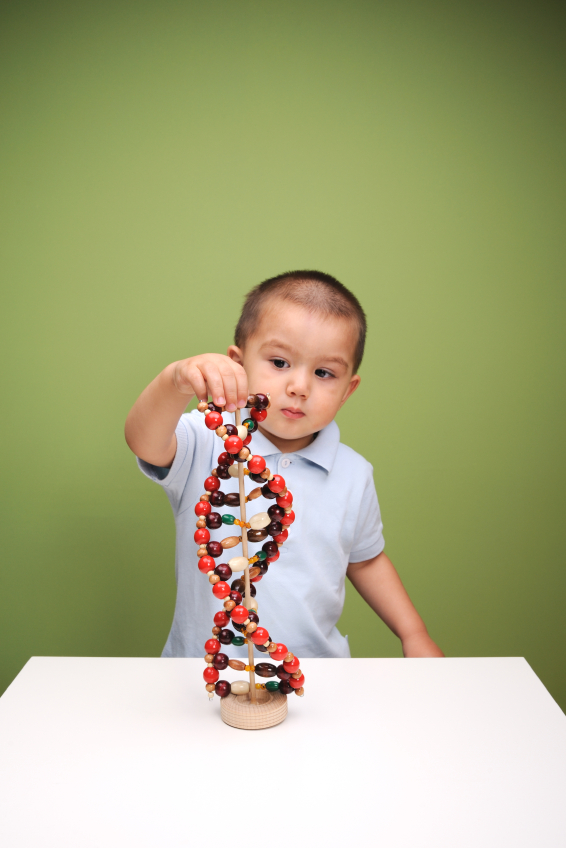Selecting babies by their DNA
Interview with
 How genetics is being used to screen embryo's for disease, could couples create designer babies, and should the government interfere?
How genetics is being used to screen embryo's for disease, could couples create designer babies, and should the government interfere?
Julian - Yes, using IVF and genetic diagnosis, you can test embryos at the moment legally for dispositions to major diseases. So, chromosomal diseases like Down Syndrome or single gene disorders like cystic fibrosis, thalassemia, Huntington's disease and some early onset forms of Alzheimer's disease. But you can only test for the genes which are associated with what the Human Fertilisation Embryology Authority judges to be serious diseases, you can't for example test for the sex of the baby and choose to have a male or female embryo and nor can you test for genes that are associated with various abilities or personality traits.
Hannah - Thank you, Julian and I suppose previously, the situation was that if a mother was at risk of having a child with Down Syndrome for example, she might have an amniotic fluid sample and cells and then have to face a very difficult decision as to whether to continue with that pregnancy or whether to abort. It is obviously a very tricky issue to face. Amy, I believe that you actually work with some of the parents who are facing these types of decisions. How do you talk about these issues with them?
Amy - Well, we see families who have a known genetic condition that's been inherited through their family. We start by exploring with them how they feel about the possibility of having a child affected by that condition. Some couples will be accepting of that. that depends on the severity of the condition, their own experience of it in the family. Some will feel very strongly that they don't wish that condition to be passed on to the next generation. So, if they take that position then pre-implantation genetic diagnosis or PGD is an option for them. It's a simpler option or it's an ethically more comfortable option for them than to go through pregnancy and have diagnosis and then have termination. But that's not to say that it's easy at all. Like all IVF, it's a lengthy process. A woman has to have her ovary stimulated to produce several eggs. It takes probably about a year from when we refer a couple to the PGD Centre which is in London to when they might have actually an embryo implanted. So, it's not something that couples undertake lightly. They do it if they feel strongly that - usually, their reasoning is that it would be unfair on a child to have that condition.
Hannah - I believe that there's a big community of people that are affected by deafness. This is another condition which is listed within the guidelines of something that we can legally, within the UK use this pre-implantation diagnosis genetic screening treatment for. There's lots of people that say that actually, deafness isn't a disability. It provides another form of language for people and we shouldn't be able to select those genes out of the gene pool.
Amy - That's true. So, as Julian mentioned, the Human Fertilisation and Embryology Authority, the HFEA decide what conditions can be selected for using PGD. One gene that causes deafness connects in 26 is on that list. The way that they make those decisions about what conditions are added to the list is dependent on how severe a condition is. They do use public consultation. So, deafness is probably at the milder end of the conditions where PGD is allowable. You're absolutely right. The deaf community feel very strongly that deafness is just a normal variation and that it shouldn't be something that you should select out of the population.
Hannah - Julian, I believe that also, as we're getting more information on the genetic basis of disorders like Schizophrenia for example or autism or attention deficit hyperactivity disorder, there's a possibility that people may want to select embryos out that have a genetic predisposition to disorders like that. Is there a worry that that might happen in the future? Are we playing God a little bit too much? Are we trying too much to shape society?
Julian - Well, you can sequence the whole genome of an embryo at the moment, but it's very expensive. It has come down to about a thousand dollars. So eventually, you'll be able to look at all the genes that are associated with say, psychiatric diseases such as Schizophrenia or depression. When you have 10 or 20 embryos and you've found the ones which don't have major genetic diseases, you'll then have a risk profile. So, embryo 1 will have a higher chance of developing Schizophrenia or embryo 2 will maybe have a higher chance of depression. It's my view that people should be free to make those decisions. The state doesn't have a role in constraining their liberty. They should have access to that information when it's available. And they should make decisions about what kind of child they think will have the best chance of the best life. I think the worry is that at the moment, you wouldn't be allowed to test for those risk factors even though the information is available.
Hannah - And, what about the fact that some of these genes might actually confer an evolutionary advantage? You've got 10 seconds to try and answer that.
Julian - Well then you have to factor that into the decision then. I think if you give people freedom, some people will choose to select against that, some people won't. You're only talking about selecting it from embryos that nature might have picked out. You're not talking about genetically engineering people.
- Previous How the baby brain develops from birth
- Next Hacking your DNA data










Comments
Add a comment